The event is an important milestone, launching a new phase for NAFOSTED in the context of the scientific ecosystem that is strongly transforming towards openness, transparency, accompanying scientists and associated with the aspiration to develop a strong and prosperous nation.
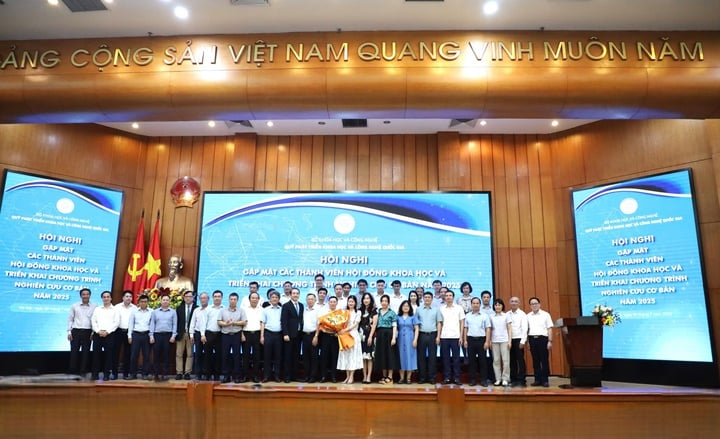
Members of the Scientific Research Council of the Social Sciences and Humanities (S&H) and Natural Sciences and Economics (NSE) for the 2022-2024 term took a commemorative photo.
NAFOSTED: Academic support for the Vietnamese scientific research community
In his opening speech, Mr. Dao Ngoc Chien, Director of NAFOSTED, expressed his gratitude to the members of the Scientific Council of the previous term for their persistent and dedicated contributions, contributing to building a solid foundation for the selection and evaluation system for scientific research tasks. At the same time, he thanked the new members, the "academic gatekeepers", who are ready to accompany the Fund in its mission of protecting scientific standards and ethics.
The conference took place in the context of Resolution 57-NQ/TW and the Law on Science, Technology and Innovation (S&I) having just been passed, opening up many important institutional breakthroughs, such as: Fully recognizing the role of public S&T funds; Formalizing the right to fail in research; For the first time clearly stipulating that the evaluation of the effectiveness of S&T investment must be based on output products and socio-economic impacts; Strongly encouraging the mechanism of academic autonomy, ownership of research results for the host organization, while increasing access to funding for young scientists and non-public S&T organizations...
Mr. Dao Ngoc Chien said that in 2025, the Fund's Executive Board will synchronously implement a number of key orientations, such as: Completing the digital system of the funding process, integrating the entire life cycle of the topic from application submission - review - acceptance - impact monitoring; Deploying flexible funding models; Supporting young research groups, through separate incentive mechanisms, connecting with international programs, and training in application skills, task management; Promoting international cooperation in research and scientific criticism, continuing to expand bilateral and tripartite partnerships with international Funds.
In parallel, the Fund will strengthen its accompanying activities - from professional training to scientific investment data analysis. In particular, it will use data from more than 4,000 funded topics to build evaluation index sets, aiming for an ecosystem where scientists are protected when engaging in academic risks.
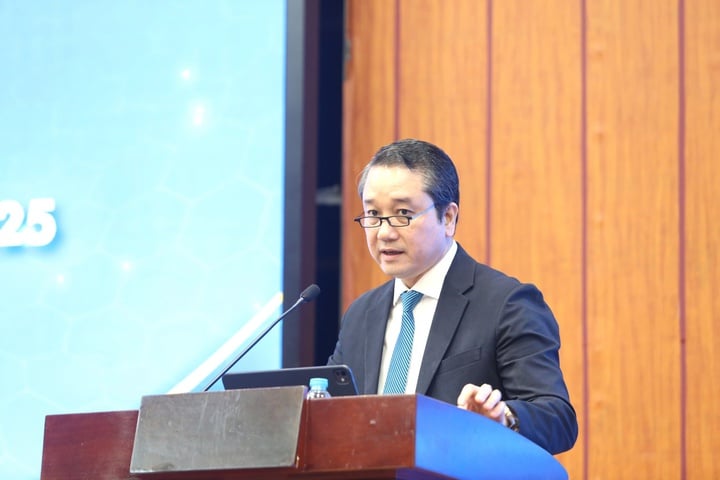
Mr. Dao Ngoc Chien, Director of NAFOSTED delivered the opening speech at the Conference.
Speaking at the Conference, Associate Professor, Dr. Tran Quang Tuyen, Vice Chairman of the Economic Science Council for the 2022-2024 term, affirmed that NAFOSTED is a model academic institution, recognized by the domestic and international community for its transparency, objectivity and integrity in research funding. The Fund has contributed to fostering trust in a serious, professional and trustworthy research ecosystem, where scientists can wholeheartedly contribute to the advancement of Vietnamese science.
Associate Professor, Dr. Tran Quang Tuyen also made two important recommendations to the Council of Science and Technology in the funding direction for the coming time, including: Prioritizing funding for interdisciplinary topics, especially research on the impact of digital technology , artificial intelligence and digital transformation on the economy, society and environment to provide a scientific basis for sustainable development policy making; Investing in research on the effectiveness of administrative reform and innovation of state governance models using quantitative methods to clarify both positive and negative impacts, thereby contributing to the improvement of national institutions and being able to publish internationally.
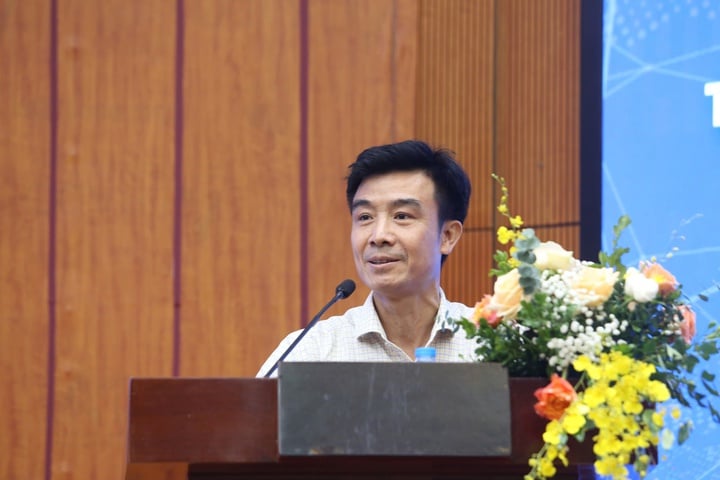
Assoc. Prof. Dr. Tran Quang Tuyen, Vice Chairman of the Economic Council for the 2022-2024 term, spoke at the Conference.
At the Conference, Mr. Nguyen Phu Binh, Deputy Director of NAFOSTED announced the Decision to establish the Scientific Council for Natural Sciences and Engineering Research for the 2025-2027 term and the Scientific Council for Social Sciences and Humanities Research for the 2024-2026 term. Accordingly, members of the Scientific Councils are scientists with outstanding research achievements, meeting the expert criteria according to Circular 37/2014/TT-BKHCN, trusted and recommended by the academic community.
In particular, the Fund has specially invited a number of Vietnamese scientists who are doing research and teaching at universities abroad and have excellent achievements to participate in scientific councils in the 2025-2027 term to improve the quality and standards of scientific assessment of the Fund according to international practices.
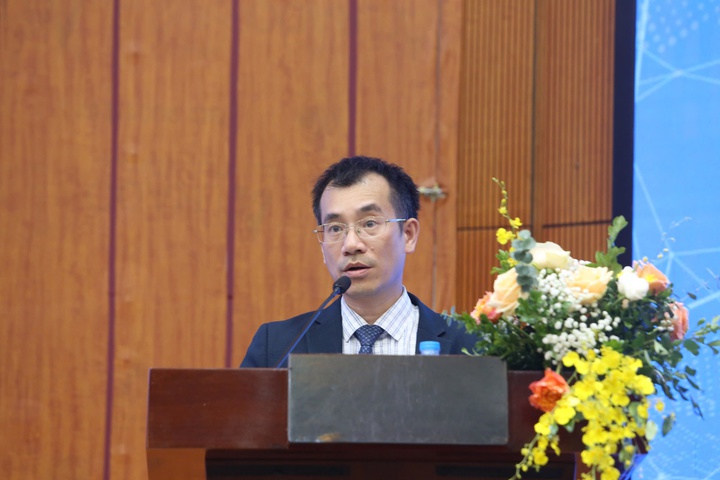
Mr. Nguyen Phu Binh, Deputy Director of NAFOSTED announced the Decision to establish the Scientific Research Council for Natural Sciences and Engineering for the 2025-2027 term and the Scientific Research Council for Social Sciences and Humanities for the 2024-2026 term.
Speaking at the Conference, Assoc. Prof. Dr. Ngo Duc Thanh, Chairman of the Scientific Council of Earth Sciences - Marine Sciences for the 2025 - 2027 term, on behalf of the Scientific Councils, expressed his thanks to the scientific community for their trust in the election and NAFOSTED for entrusting the task. At the same time, he affirmed his determination to accompany the Fund with a sense of responsibility, transparency and the highest academic standards.
According to Associate Professor, Dr. Ngo Duc Thanh, Vietnam is currently facing pivotal turning points for the development of science and technology. Resolution No. 57-NQ/TW on breakthroughs in the development of science and technology, national innovation and digital transformation, along with positive changes in the operating mechanism and funding scale of the NAFOSTED Fund, are opening a new development phase for the field of basic research.
To make the NCCB funding program more effective, Associate Professor, Dr. Ngo Duc Thanh proposed four major orientations: Having long-term, research-oriented funding programs; continuing to consider strengthening support mechanisms for young scientists, especially Postdocs; implementing working sessions and meetings for industry scientific councils to expand, propose major, oriented, breakthrough problems; honoring scientists and promoting accountability.
Assoc. Prof. Dr. Ngo Duc Thanh, Chairman of the Scientific Council of Earth Sciences - Marine Sciences for the 2025 - 2027 term, spoke at the Conference.
Towards a breakthrough, transparent and internationally integrated science
Speaking at the Conference, Deputy Minister of Science and Technology Bui The Duy, Chairman of the NAFOSTED Management Board, emphasized that this is an important moment marking the transition from a basic research fund to a comprehensive national fund system, operating according to an open, flexible model and approaching international practices. In the spirit of inheriting the core values of NAFOSTED - transparency, integrity, academic freedom - the new model will expand to cover the entire field of science: from basic research to application, strategic technology and innovation.
According to Deputy Minister Bui The Duy, the role of the Fund in the new period will not only stop at financial support, but will also play a role in designing the scientific ecosystem. "The Fund will be the place to create the environment, ensure procedures, and the 'game' must be led by the scientists themselves."
With some long-term programs, the Scientific Council not only selects topics, but also takes on the role of "chief engineer", from orientation, implementation to evaluation of final results within 5-10 years.
One of the breakthroughs pointed out by the Deputy Minister is that the revised Law on Science, Technology and Innovation has created a solid legal framework for the mechanism of "delegation - allocation of expenditure - acceptance of risk". Accordingly, the host organization has full authority to use funds in the most optimal way, as long as it does not violate the law and is not bound by detailed estimates as before. In particular, if the research topic does not achieve the expected results but the implementation process complies with regulations, the scientist will not have his/her funds revoked, and will not be held administratively, civilly or criminally responsible. The Deputy Minister emphasized, "This is the core point for science to dare to enter difficult, high-risk but high-value fields, where real breakthroughs can be created".
Deputy Minister Bui The Duy also said that the entire scientific research system is being thoroughly restructured. The six retained national programs will focus on core areas; basic research topics will be transferred to a periodic selection format, not linked to the program, ensuring flexibility and expanding access opportunities for scientists. In particular, the Law on Science, Technology and Innovation has added four breakthrough policies specifically for basic research, namely:
Firstly, apply the block funding mechanism - package funding, giving the initiative to build topics to institutes and schools.
Second, allow the topic to recruit graduate students and researchers for a period of 36 months with full benefits.
Third, build a program specifically for Postdocs - the core force implementing research in many developed countries.
Fourth, open independent research task packages for doctoral students, creating academic and financial conditions to complete doctoral theses.
Along with that is a strong transformation in the way of implementing and managing S&T tasks. All activities of the Fund will be carried out on an electronic platform, from selection, appraisal to contract signing, progress monitoring to minimize procedures, improve efficiency and transparency. The Ministry of Science and Technology is also proposing to replace the "Acceptance Council" with a "Quality Assessment Council", with the goal of bringing scientific activities closer to international standards.
Referring to social sciences and humanities research, Deputy Minister Bui The Duy emphasized the need to clearly orientate towards the fields of law, public policy, and institutions, as an academic foundation for Party and Government projects.
For applied topics, the results need to be linked to transfer and have specific impacts on the socio-economy, especially on industries, localities and businesses. The new funding model will encourage the formation of topic clusters and linked research chains, linked with strong research groups and modern laboratories.
The Deputy Minister also called on scientists, together with the Ministry of Science and Technology and the Fund, to contribute their opinions to the documents guiding the implementation of the Law; and join hands in shaping a new science and technology ecosystem that is innovative, honest and internationally integrated. "This is not only an institutional revolution but also a revolution in thinking, in the way we invest, organize and evaluate science. We look forward to the companionship of teachers - those who are creating the vitality of Vietnamese science today and tomorrow."
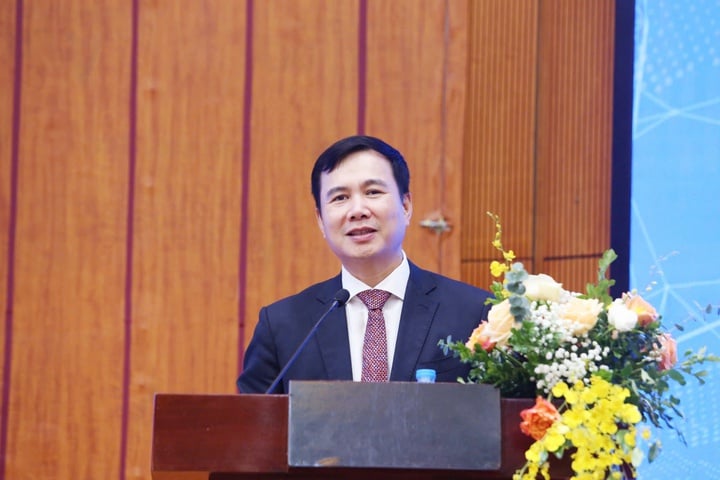
Deputy Minister of Science and Technology Bui The Duy, Chairman of NAFOSTED Management Board, delivered a speech at the Conference.
Within the framework of the Conference, delegates listened to insightful sharing from Ms. Nguyen Thi Hoang Ha, Deputy Director of the Aus4Innovation Program, about the Australian Government's experience in building and operating scientific councils. In her speech, Ms. Nguyen Thi Hoang Ha also introduced the Monitoring, Evaluation and Learning (MEL) method, an advanced management tool being applied by the Australian Government and many international organizations to improve the effectiveness of science and innovation programs. According to Ms. Nguyen Thi Hoang Ha, MEL not only helps monitor the progress and results of the project, but is also the foundation for continuously improving implementation methods, promoting internal learning and ensuring accountability to stakeholders.
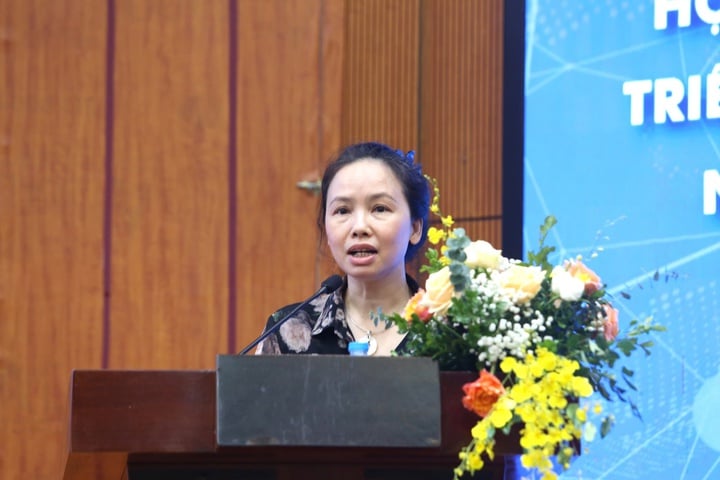
Ms. Nguyen Thi Hoang Ha, Deputy Director of Aus4Innovation Program, spoke at the Conference.
Source: https://mst.gov.vn/nafosted-kien-tao-he-sinh-thai-khoa-hoc-doi-moi-minh-bach-hoi-nhap-197250708222046342.htm



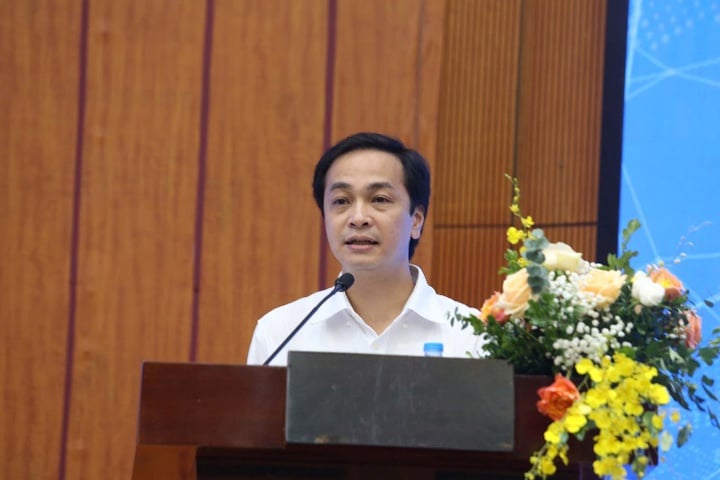

![[Photo] Prime Minister Pham Minh Chinh chairs meeting of National Steering Committee on International Integration](https://vphoto.vietnam.vn/thumb/1200x675/vietnam/resource/IMAGE/2025/8/26/9d34a506f9fb42ac90a48179fc89abb3)
![[Photo] Prime Minister Pham Minh Chinh receives CEO of Samsung Electronics](https://vphoto.vietnam.vn/thumb/1200x675/vietnam/resource/IMAGE/2025/8/26/373f5db99f704e6eb1321c787485c3c2)
![[Photo] Brilliant red of the exhibition 95 years of the Party Flag lighting the way before the opening](https://vphoto.vietnam.vn/thumb/1200x675/vietnam/resource/IMAGE/2025/8/27/e19d957d17f649648ca14ce6cc4d8dd4)
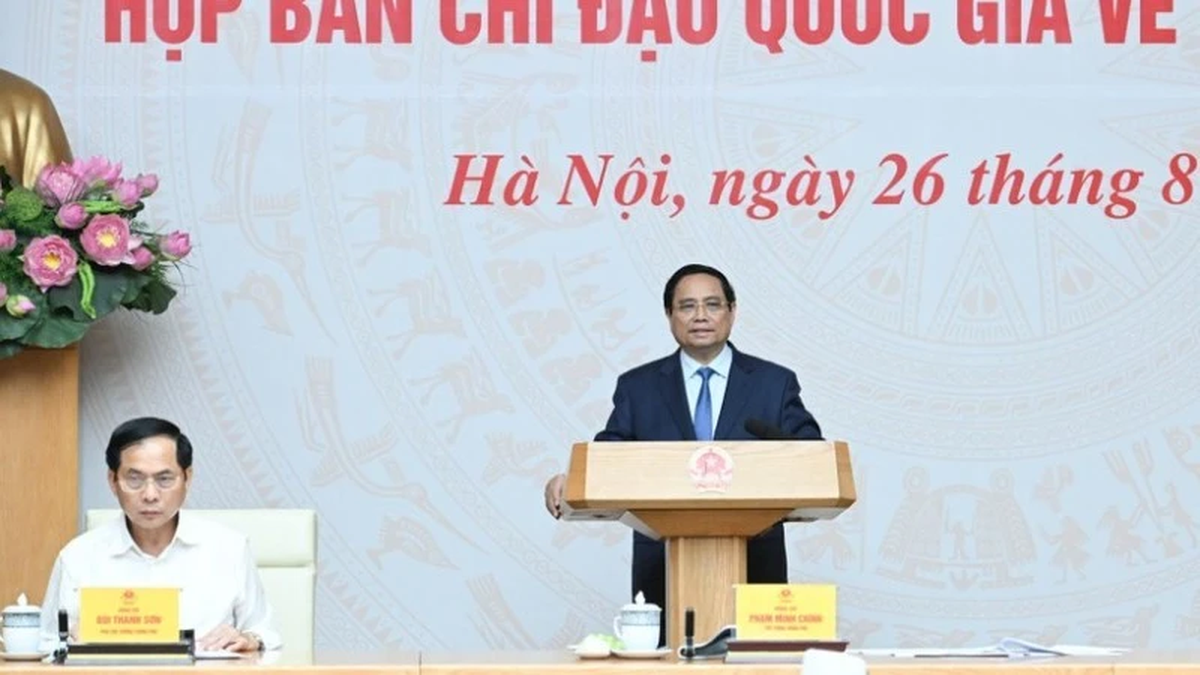
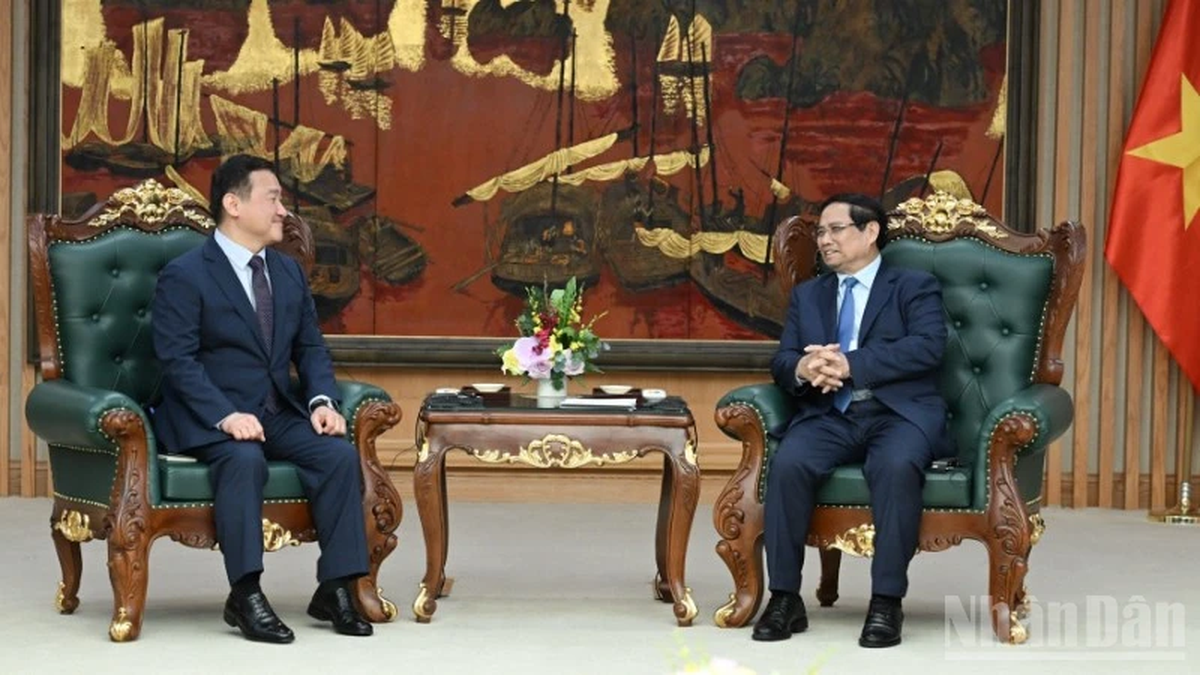
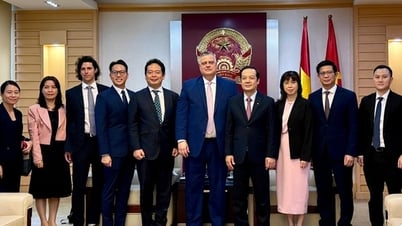





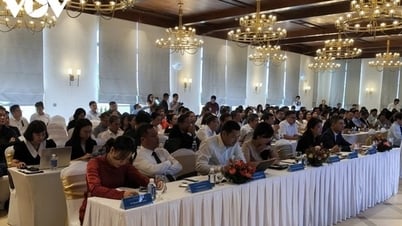


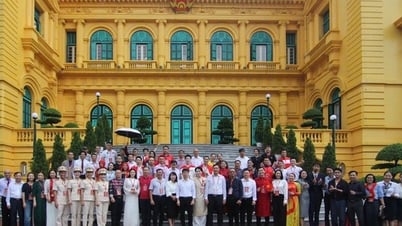

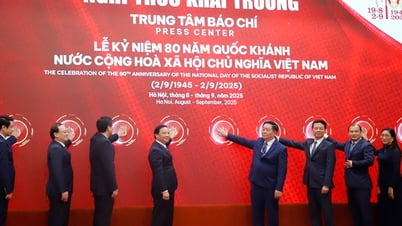
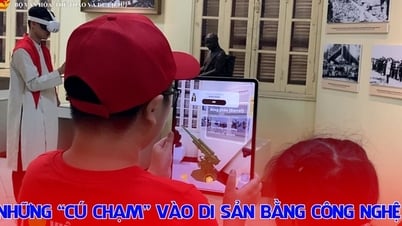




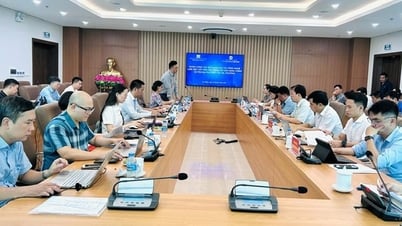
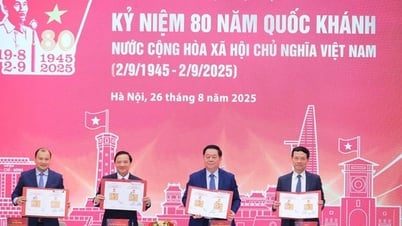
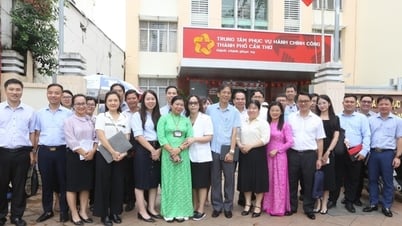
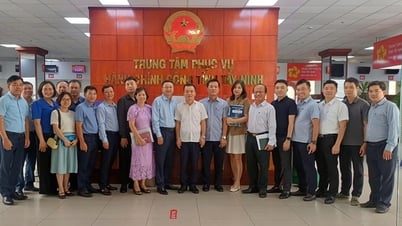





























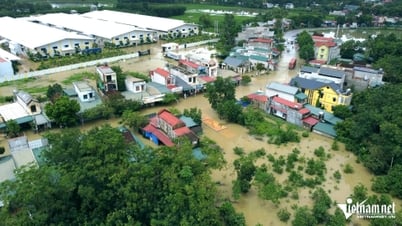

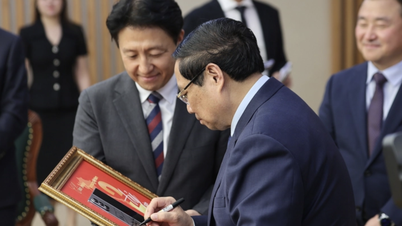


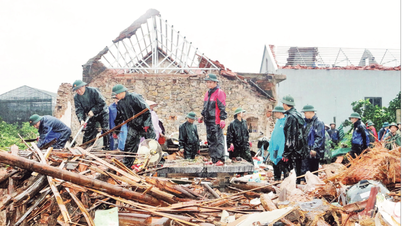

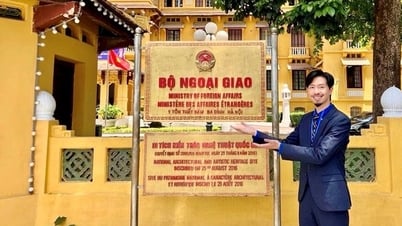


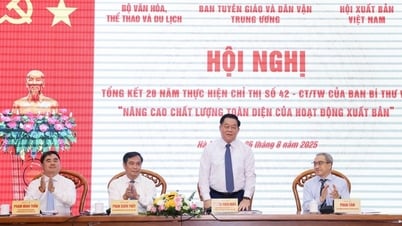
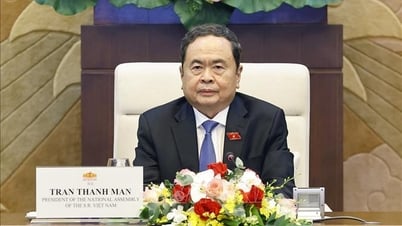

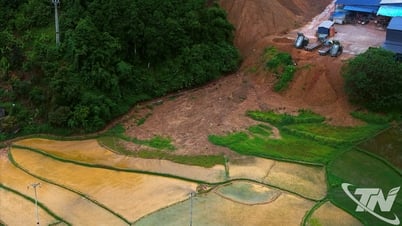


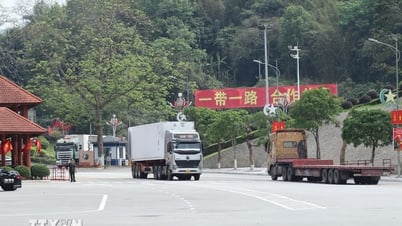
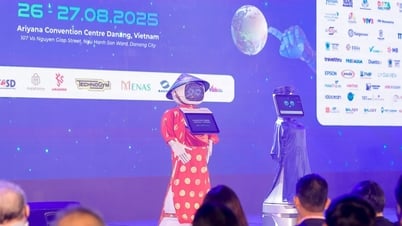









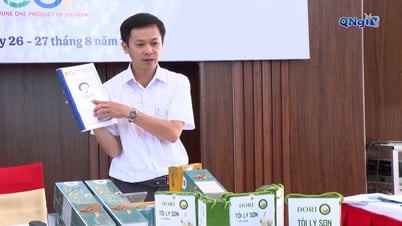







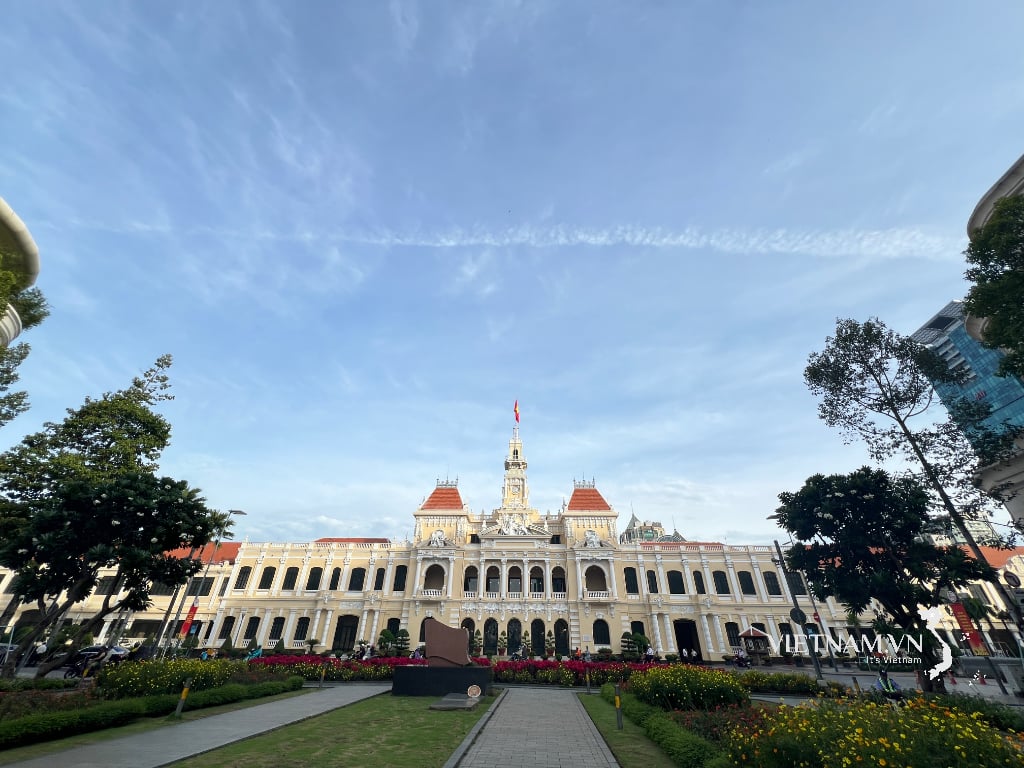

Comment (0)